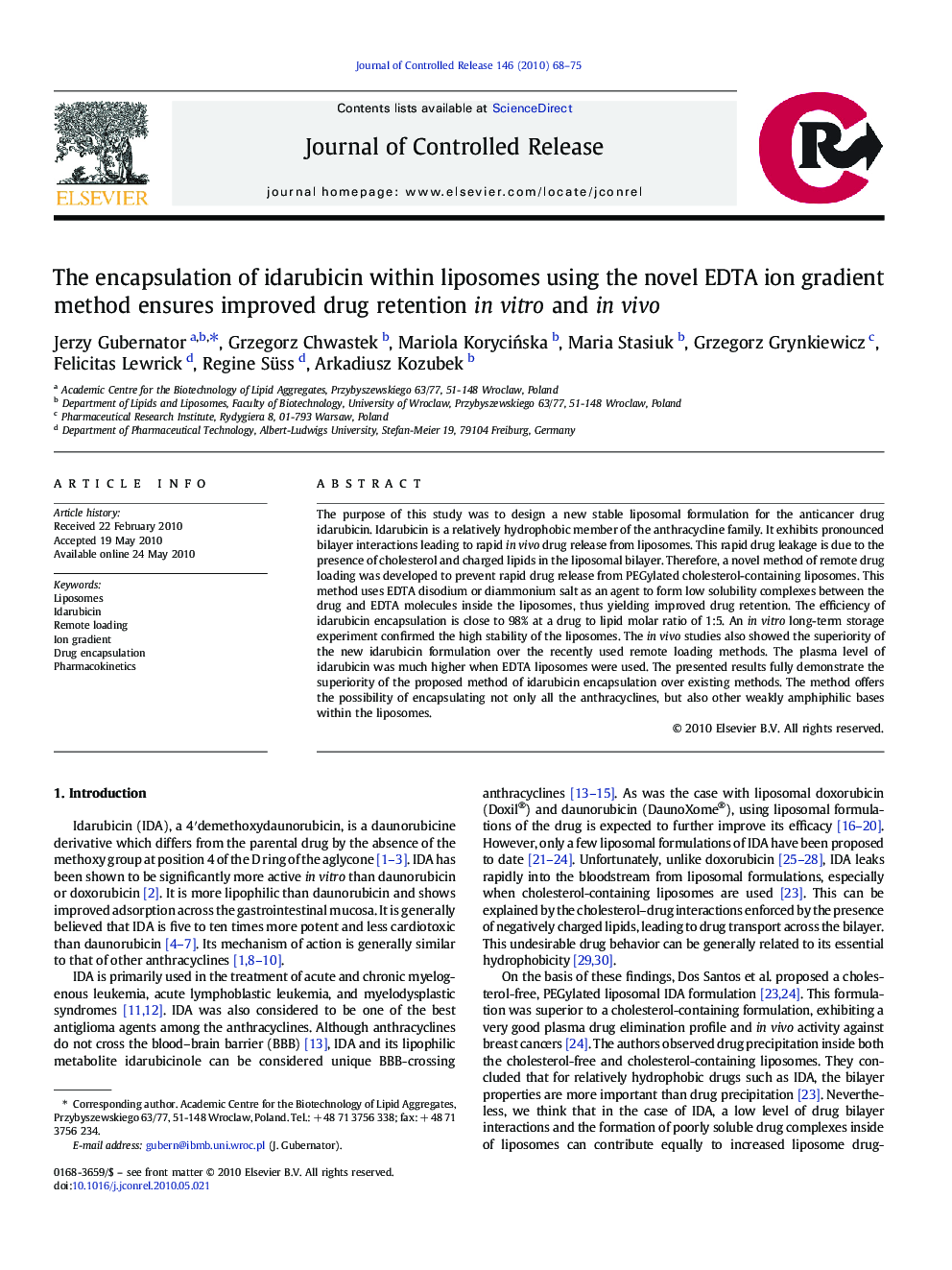| کد مقاله | کد نشریه | سال انتشار | مقاله انگلیسی | نسخه تمام متن |
|---|---|---|---|---|
| 1425922 | 986786 | 2010 | 8 صفحه PDF | دانلود رایگان |

The purpose of this study was to design a new stable liposomal formulation for the anticancer drug idarubicin. Idarubicin is a relatively hydrophobic member of the anthracycline family. It exhibits pronounced bilayer interactions leading to rapid in vivo drug release from liposomes. This rapid drug leakage is due to the presence of cholesterol and charged lipids in the liposomal bilayer. Therefore, a novel method of remote drug loading was developed to prevent rapid drug release from PEGylated cholesterol-containing liposomes. This method uses EDTA disodium or diammonium salt as an agent to form low solubility complexes between the drug and EDTA molecules inside the liposomes, thus yielding improved drug retention. The efficiency of idarubicin encapsulation is close to 98% at a drug to lipid molar ratio of 1:5. An in vitro long-term storage experiment confirmed the high stability of the liposomes. The in vivo studies also showed the superiority of the new idarubicin formulation over the recently used remote loading methods. The plasma level of idarubicin was much higher when EDTA liposomes were used. The presented results fully demonstrate the superiority of the proposed method of idarubicin encapsulation over existing methods. The method offers the possibility of encapsulating not only all the anthracyclines, but also other weakly amphiphilic bases within the liposomes.
Graphical AbstractFigure optionsDownload as PowerPoint slide
Journal: Journal of Controlled Release - Volume 146, Issue 1, 17 August 2010, Pages 68–75